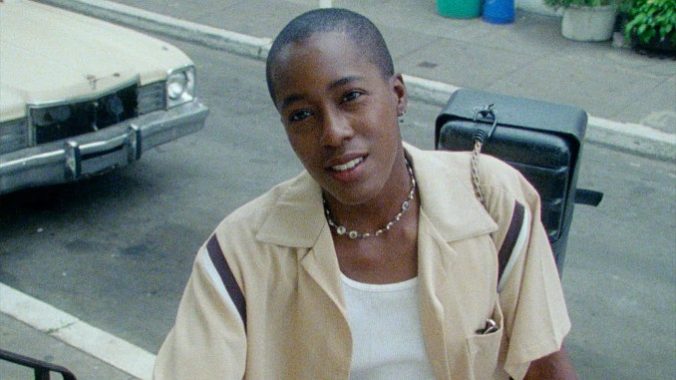Best of Criterion’s New Releases: July 2023

Each month, Paste brings you a look at the best new selections from the Criterion Collection. Much beloved by casual fans and cinephiles alike, Criterion has presented special editions of important classic and contemporary films for over three decades. You can explore the complete collection here.
In the meantime, because chances are you may be looking for something, anything, to discover, find all of our Criterion picks here, and if you’d rather dig into things on the streaming side (because who’s got the money to invest in all these beautiful physical editions?) we’ve got our list of the best films on the Criterion Channel. But you’re here for what’s new, and we’ve got you covered.
Here are all the new releases from Criterion, July 2023:
The Watermelon WomanYear: 1996
Director: Cheryl Dunye
Stars: Cheryl Dunye, Guinevere Turner
Rating: R
Runtime: 84 minutes
There’s something revolutionary about the idea of reclaiming and asserting one’s history, and that’s exactly what Cheryl Dunye set out to do with The Watermelon Woman, which she wrote, directed, edited and starred in. Known as the first feature film directed by a Black lesbian, the 1996 romantic comedy-drama tells a story hardly ever told. About a young Black lesbian (Dunye) who works at a video store during the day and wants to make a film about 1930s Black actresses who were forced to play mammies, sometimes uncredited, the film explores the difficulties in navigating archival sources that erase and ignore the legacies of Black queer women in Hollywood. The Watermelon Woman is a perfect example of Dunye’s unique “Dunyementary” style, wherein she blends narrative and documentary techniques (with a major assist in this film from director of photography Zoë Leonard). It’s a piece of queer cinematic history that deserves all of the praise. —Tre’vell Anderson
BreathlessYear: 1960
Director: Jean-Luc Godard
Stars: Jean-Paul Belmondo, Jean Seberg, Daniel Boulanger
Runtime: 90 minutes
Godard is arguably the most prolific, impactful French director of all time, and Breathless is his first New Wave film: To some, it spawned a revolution, and even if you object to that narrative, its influence on his home country and the New Hollywood period in 1970s America is undeniable. Breathless stars Jean-Paul Belmondo as an incompetent criminal in love with an American student named Patricia (Jean Seberg) in Paris. When he murders a cop, the film turns from a light Parisian affair to a tense love story, and the question that hangs in the balance is whether Patricia will betray her criminal beau. —Shane Ryan
After HoursYear: 1985
Director: Martin Scorsese
Stars: Griffin Dunne, Rosanna Arquette, Verna Bloom, Thomas Chong, Linda Fiorentino, Teri Garr, John Heard, Richard Cheech Marin, Catherine O’Hara
Rating: R
Runtime: 97 minutes
A hilarious nightmare whipping breathlessly from one anxious incident to the next, After Hours is a coffee-and-coke ode to New York’s potential. Square cubicle jockey Griffin Dunne gets buffeted around the city’s social corners after pursuing a mysterious hook-up (Rosanna Arquette). It frays the nerves and thwacks the funnybone. Dunne’s constant face-washing in the face of getting washed by the countless women who refuse to put up with his nonsense is a physical manifestation of his nervous, incredulous deliveries. He’s neurotic, but only after severe duress shatters his facade. Anyone would turn into this, under the diamond-forming pressures of NYC at its least welcoming. His long, horny night of the soul is as kinetic as it is resonant. Scorsese zips along throughout the subcultures, twisting the screws by rushing through the shadows of an artist’s loft and the mohawked crowds of a punk bar. At just 97 minutes, After Hours is short enough that it sustains its pace without burning us out. At the exact midpoint of the ‘80s, After Hours is entrenched enough in obsolescence (getting screwed by your cash flying out of a cab window; the rising price of subway tokens; the existence of landlines) to be a bracing time capsule. One of Scorsese’s funniest movies, written by Vampire’s Kiss’ Joseph Minion, After Hours delights in torturing its yuppie, trapped in a city that its filmmaker loves. Maybe the racing rat might not be who New York is for.—Jacob OIler
-

-

-

-

-

-

-

-

-

-

-

-

-

-

-

-

-

-

-

-

-

-

-

-

-

-

-

-

-

-

-

-

-

-

-

-

-

-

-

-








































